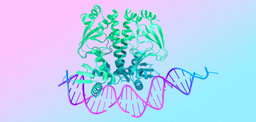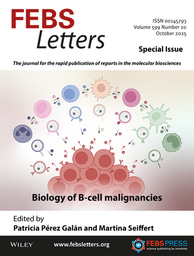FEBS 60th Anniversary reflections – Emmanouil Fragkoulis, FEBS Science and Society Committee Chair

In brief, what is your role at FEBS?
I am Chair of the FEBS Science and Society Committee, which aims to contribute to shaping of effective science policy at the European level, to raise awareness among molecular life scientists of research developments and associated ethical/legal considerations in areas with high societal interest, and to increase public understanding of science. I also serve on the FEBS Executive Committee.
Tell us a little about your research interests and career.
My research activities focused on purification and characterization of Dopa decarboxylase, cloning of its gene, and its use as biomarker in several types of cancer. I obtained my PhD from the University of Marburg, Germany and worked as a postdoc at the Deutsche Krebs Forshung Center in Heidelberg and Max Planck Institute for Cell Biology in Ladenburg. From 1992 I was Professor of Biochemistry in the Dept of Biochemistry and Molecular Biology of the University of Athens, Greece, where I also held positions of Chairman of the Faculty of Biology and Dean of the School of Natural Sciences. I also worked as Secretary General for Research and Technology of the Greek Government (1996–1999), and am a former General Secretary and President of the Hellenic Biochemical and Biophysical Society.
What was your first contact with FEBS?
My first contact with FEBS was around 1980 when, as Secretary General of the Hellenic Biochemical Society, I had my first meeting with the FEBS Secretary General at the time, Prof. Dirheimer. He was a very good friend of Greece and spent a large part of his holidays with his caravan in the country.
Looking back over 60 years of FEBS, what about FEBS or its programs would you pick out as particularly valuable for ‘advancing molecular life sciences’?
I would like to highlight that FEBS played a role with others in the formation of the European Research Council (ERC), the EU funding body for investigator-driven frontier research.
As Secretary General for Research and Technology of the Greek Government 1996–1999, I participated in the councils of the European Ministers who were shaping European scientific policy and the formation of the fourth framework program in accordance with Lisbon Declaration. During these meetings I had the opportunity for extensive discussions with the Portuguese Minister of Research Prof. Mariano Cago and later president of the Initiative for Science in Europe (ISE). In this period some initial ideas were developed for the support of basic science. Many distinguished scientists in the field of life sciences later participated in these preliminary discussions, such as the Director General of EMBL Prof. Fotis Kafatos and stakeholders from the Commission such as the Director General of the European Commission Dr Achileas Mitsos. These preliminary discussions were formulated later on by Julio Cellis, FEBS Secretary General at the time, and the creation of the European Life Sciences Forum (ELSF) was announced, which was the precursor for the creation of the ERC.
What are your main goals at FEBS over the next year or so?
Working along with my committee, my aims are to provide good suggestions for the development of work on science policy in FEBS, and to promote FEBS ideas in scientific federations such as Biomed Alliance and ISE, to which FEBS belongs.
What do you see as the main challenges in the research landscape for bioscience researchers in the coming years? How can/could academic Societies help with this?
Obtaining funding is always a challenge. Academic Societies such as FEBS could develop more appropriate structures to facilitate young scientists to claim money from the Framework Programs of the European Commission for research funding.
What does FEBS mean to you?
An established platform in which one can offer assistance to colleagues, especially young scientists, but also to society.
What FEBS opportunities would you recommend to scientists at your or an earlier career stage?
I would recommend following the various activities of FEBS in order to be informed at the right time about the possibilities offered by FEBS, but also to consider standing for committee positions to contribute to the proper functioning of FEBS.
Top image of post: Athens, workplace of Emmanouil Fragkoulis and host city of a 'Special FEBS Meeting' in 1982 and a FEBS–IUBMB joint Congress in 2008. Photo by by Leonhard Niederwimmer from Pixabay.





Join the FEBS Network today
Joining the FEBS Network’s molecular life sciences community enables you to access special content on the site, present your profile, 'follow' contributors, 'comment' on and 'like' content, post your own content, and set up a tailored email digest for updates.